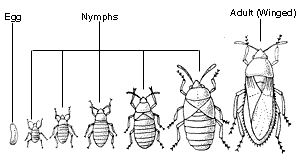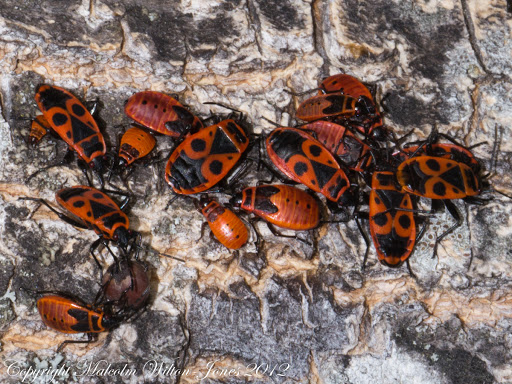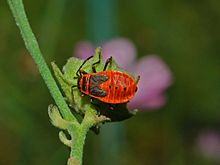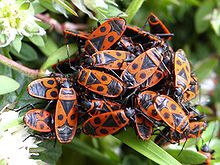The answer is more or less yes. Normally Firebugs (Pyrrhocoris apterus) go through 5 nymph instar stages (as do most Hemiptera), where they resemble the adults more and more as they grow. Only adults are winged and have have functional reproductive organs. This type of metamorphosis is called hemimetabolous or simple metamorphosis (in contrast to Holometabolism or complete metamorphosis). However, I cannot find a good overview of the instar stages of Firebugs to link to.
A generic overview of Heteroptera (True Bugs) can bee seen here
(from www.amnh.org/learn/biodiversity_counts):

This picture shows (at least) three instars + adults of Pyrrhocoris apterus (from http://www.projectnoah.org/spottings/17248017). The large nymph with 3 dots along the midline is the final 5th instar nymph:

However, due to hormonal disruptions there have been cases with even more nymph stages (6th and 7th instars with adult characteristics), but this is under unnatural laboratory conditions (e.g. Slama & Williams 1965 and Konopova et al. 2011). Konopova et al (2011) also has pictures of instar stages 4 & 5 (along with gene knowdown versions).
 Adults:
Adults:


